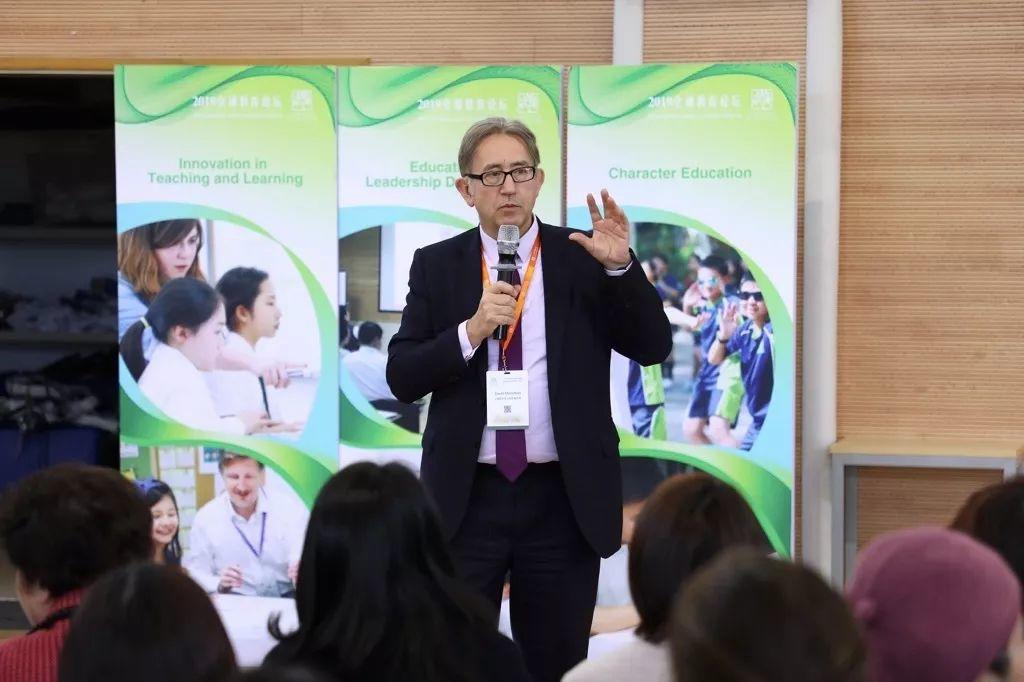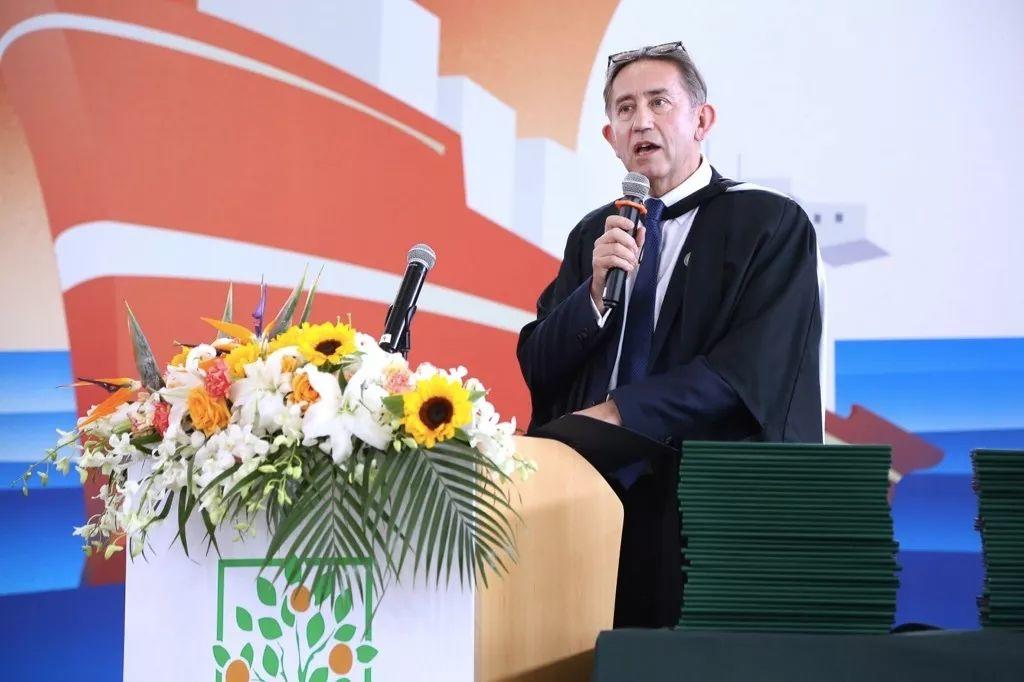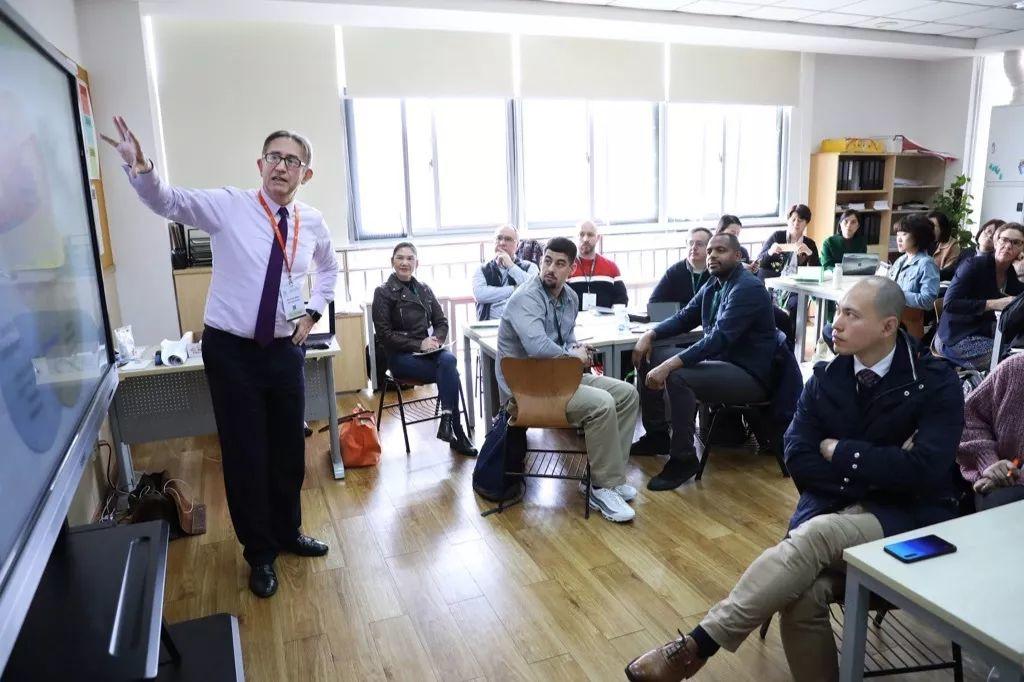- 翰林提供学术活动、国际课程、科研项目一站式留学背景提升服务!
- 400 888 0080
Interview of Pao School Executive Headmaster David Mansfield
David Mansfield, Executive Headmaster, joined YK Pao School in 2017. David is a graduate of Cambridge and Oxford Universities and holds an MBA in International Educational Leadership. He previously led three different schools, including one of the leading international schools in China and two ‘outstanding’ (Ofsted) schools in the UK.
Edited based on interview transcripts. For the complete interview, please watch the above video.
In 2012 when I traveled to China, I felt it was time for a change. I was impressed with what was happening, very challenged by the emergence of China onto the world stage. And I thought it would be a real opportunity to come and work in China.
 “
“
For me, it is a lovely job to work with a school that has a fantastic culture, with strong values embedded deep into its foundations.
”
1Pao School’s bilingual education
Pao School was the forerunner of this new type of education that was beginning in the 2000s: a bilingual international education for Chinese students. What YK Pao School has created is a unique blend that everybody globally is looking for at the moment, which is the ability to not only speak good Mandarin and good English, but also able to mix in Chinese society, international business and education society, and be effective in all of those communities.
We continue to push towards creating one of the most wonderful examples ofwhat we are about - our students when they leave in Year 12.They have the capacity to engage with just about any audience.
Just recently we've had three really significant victories in academic competitions: TheUnited States Academic Decathlon, the Wharton Business Competition at the University ofPennsylvania, where we beat 2000 other schools here in China, and Tycoon Business Entrepreneur Competition which will take our students to Buckingham Palace to be presented with a prize by Prince Andrew.
2Our students’ unique journey
The key phrase that we've developed, to summarize where the school is going, is creating a School for Tomorrow's China, an Education for Tomorrow's World. And by that we mean that what the students learn here in China they can take with them overseas, ideally in some of the top universities, and then they can bring it back.
For some of our internationals it's the other way around. They come from overseas, experience China at Pao School for however many years it is, and then they go back overseas again. What we are creating here is the space where these two sets of journeys mix. We call it two-way immersion. Students who are English-speaking are immersed in Chinese, and Chinese who are obviously looking at their own culture and are becoming more adapted understanding it, are immersed in international experience.
At our 2018 graduation ceremony, Andrew Yao, one of our governors, gave an important speech in which he spoke about the fact that as China grows and becomes more and more successful, as the 'Belt and Road Initiative' expands further, more and more countries will need to understand China. And it will be the job of students coming from schools like Pao School who will interpret China to the world, and the world back to China.
3What are your priorities?
My job as the Executive Headmaster involves not only bringing together the three campuses - Primary Campus at Wuding, Middle School Campus at Hongqiao and High School Campus at Songjiang, but also creating the vision and strategy that will take the School into the future. We want to make sure that Pao School is not resting on its laurels, but beginning to build to the next stage of its journey. And that means spreading its wings, becoming stronger and more effective in all that it does, and it means working on a lot of very interesting new projects, with the Founders and the Governors, so that we can take the Pao School into the next phase.
We have a development plan which is structured currently into five-year blocks. We are in our third five-year plan. The next target in the fourth five-year plan from 2022 is to really become a world-leading school, and to ensure that what we are doing here has a footprint globally. We are hoping that by the 25th anniversary of the School in 2032 we'll be able to celebrate a Pao School which has an international reputation and is continuously cultivating bright young minds who are going to change the world they enter.

4Professional education at Pao School
One of the great challenges of bilingual education is not just having Chinese teachers and international teachers, but actually having people who come from a wide variety of pedagogical backgrounds. Bringing them together and getting a common language across the school is really important. We've embedded that into a set of teaching standards, which we apply throughout our performance management and our training programmes. We have also established our Professional Learning Centre, structured to provide in-house training in teaching and learning to ensure that every teacher who needs it or wants it is able to get coaching and mentoring.

5Your most memorable experience?
Probably Kevin at Songjiang, who came in, a very unassuming young man, to a governors meeting once. He was carrying a big bag with him. And he pulled out a semi-spherical drum which looked a bit weird to me. And I thought what is he going to do? Because we often at the beginning of governor meetings have a presentation by students. And Kevin took out this instrument whichwas quite an uncommon drum. And he began to produce the most extraordinary rhythm and music on it andcompletely 'Wow'-ed all of the governors.We realised in this very unassuming young fellow an amazing level of talent. I think the experience of seeing young people using their talents in an unassuming, humble way is probably the most moving thing that I have experienced in my life as a teacher.I've seen that many, many times (at Pao School).It comes from the Founders down, an unassuming commitment to doing things well. And it dribbles through teachers, and teaching, through to the students. My main work is working with principals, governors and the Founders. I regularly speak with all of them, andthink how lucky I am working in a school like this where you have people who are not trying to force their own agendas. They genuinely try to engage with others in a collaborative process,are prepared to listen, even though they don't have to. But they do, because they want to make the school a better place.
I think that's the story of Pao School's success. It has very high aspirations but goes about achieving them in a very decent way.

最新发布
© 2025. All Rights Reserved. 沪ICP备2023009024号-1









